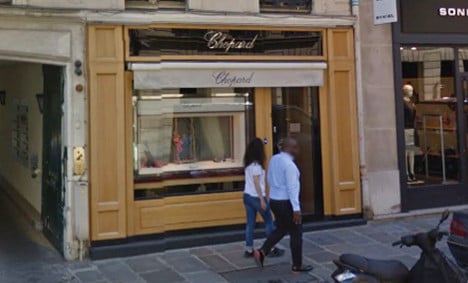JEWELLERY
Thief ‘nabs €1m worth of jewels’ from Paris store
An armed man has managed to escape a Chopard jewellery store in Paris with goods worth an estimated €1 million, according to reports.
Published: 11 December 2015 14:43 CET

Photo: GoogleMaps
The man robbed the Swiss luxury store on rue du Faubourg Saint-Honoré in central Paris, not far from the palais de l'Elysée, at 11am.
According to reports in Europe 1, he fled on foot after threatening staff with a gun.
It remains unclear exactly whether the firearm was real or not, but the sheer threat was enough for the man to pull off the heist without injuring anyone or causing any structural damage to the shop.
The store's stock, however, suffered a serious blow, with initial estimates suggesting €1 million worth of jewels were taken.
The haul pales in comparison to the total takings of another set of Paris jewel thieves, who were jailed earlier this year after pinching €100 million worth of jewels in a double heist at a Harry Winston store.
And Chopard is no stranger to robberies either, with thieves taking $1 million worth of the brand's jewels from a hotel during the 2013 Cannes Film Festival.
Url copied to clipboard!


 Please whitelist us to continue reading.
Please whitelist us to continue reading.